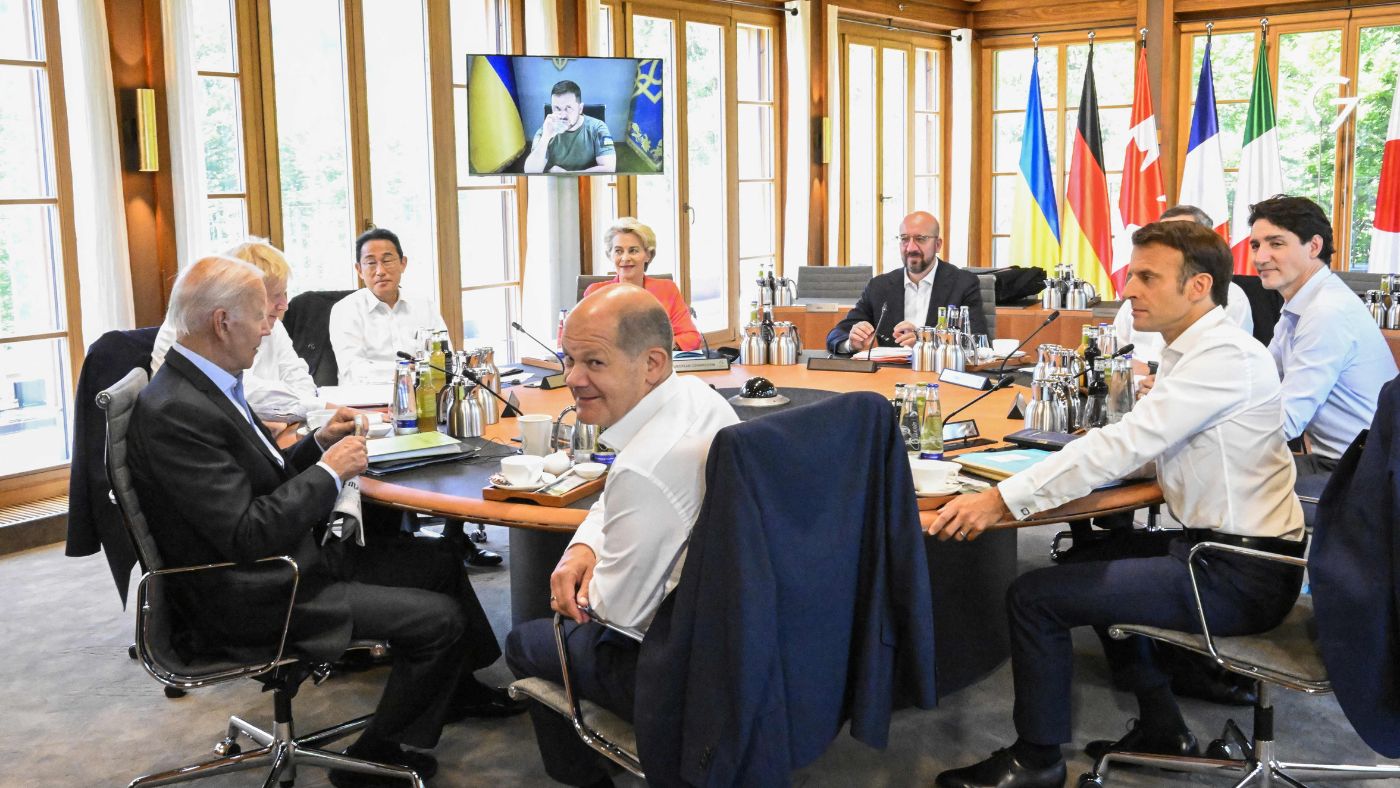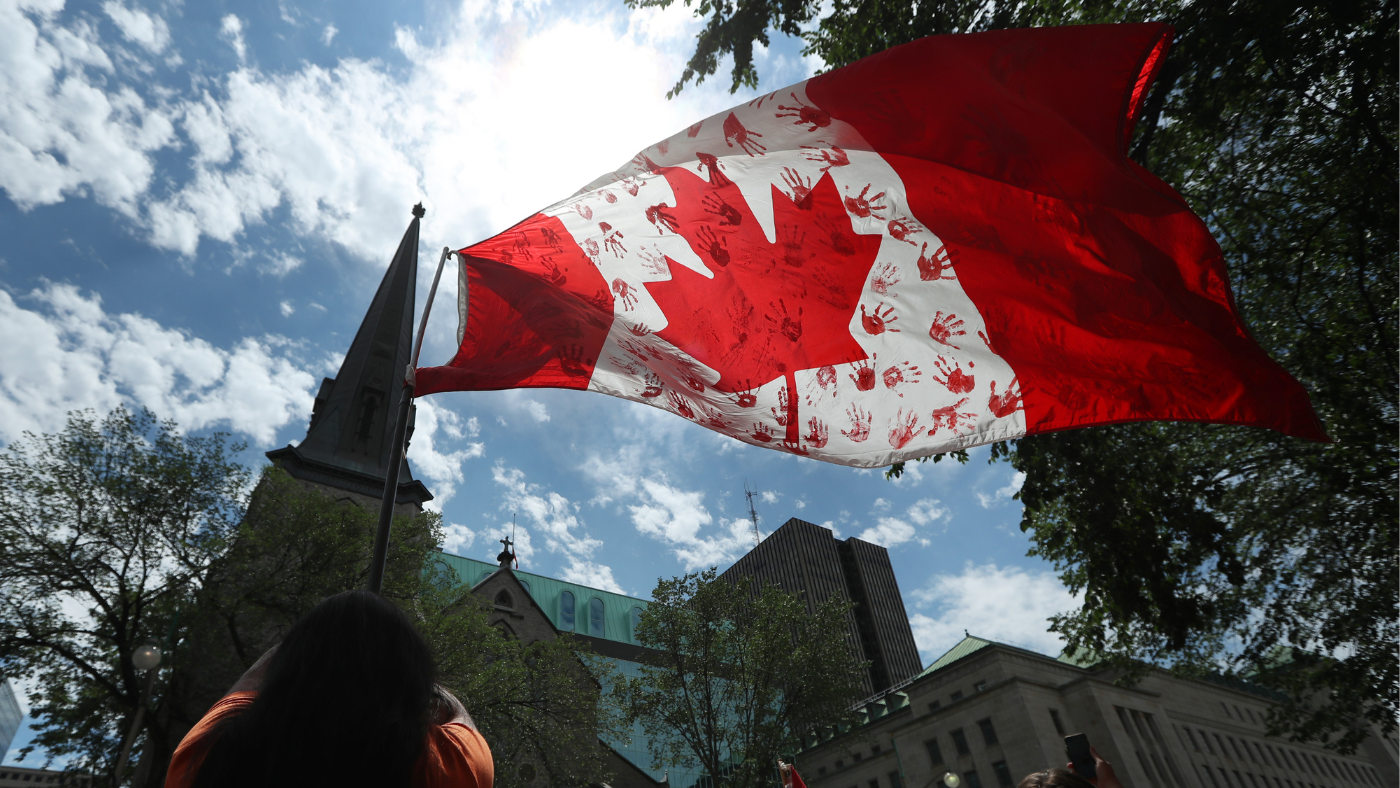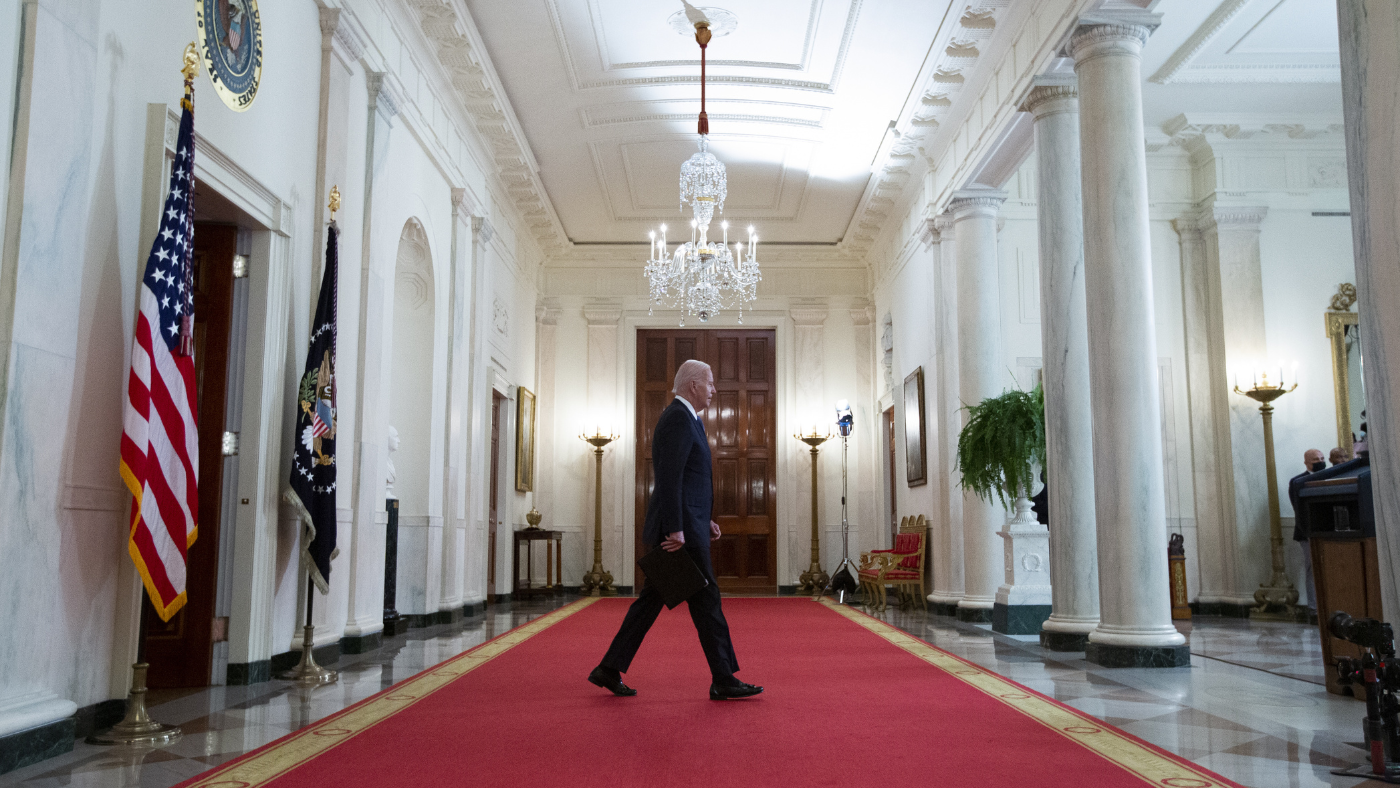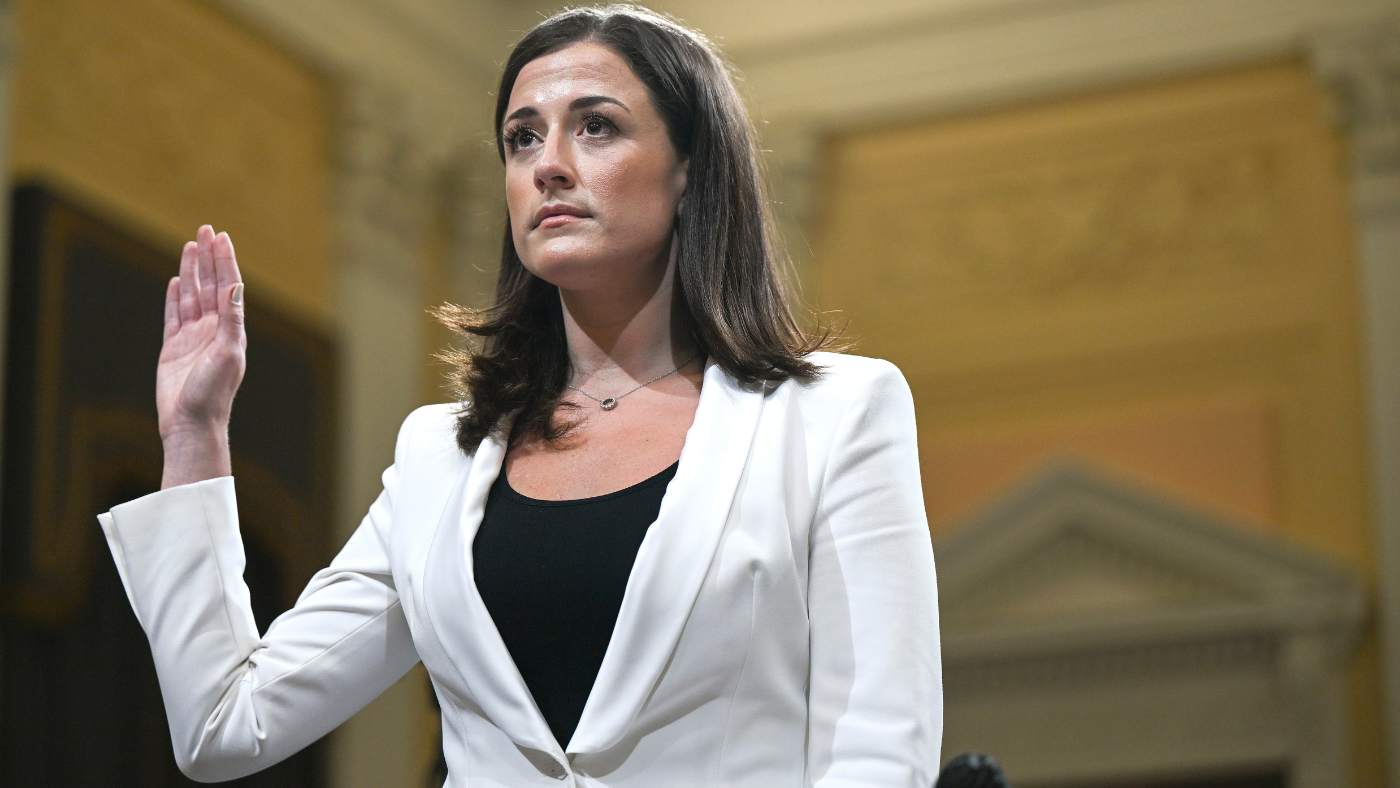‘The pandemic’s stock market stars are getting hammered now the WFH bubble is bursting’
Your digest of analysis from the British and international press

- 1. The WFH bubble has burst
- 2. The siege of Sarajevo revealed the vital importance of war reporting
- 3. Inside the campaign against the ‘Genocide Games’ disrupting the Beijing Winter Olympics
- 4. Businesses must re-invent themselves in line with the times or risk losing customers
- 5. Waiting lists must not be a pretext for privatising the NHS
A free daily email with the biggest news stories of the day – and the best features from TheWeek.com
You are now subscribed
Your newsletter sign-up was successful
1. The WFH bubble has burst
Matthew Lynn for The Spectator
on fading stars
“A whole series of reasons” account for the stock market turning “very wobbly this month”, Matthew Lynn writes at The Spectator. “Inflation is soaring”, Russia’s looming threat to invade Ukraine is “destabilizing the continent” and Joe Biden’s “attempt to tax and spend his way to growth has turned into a dismal failure”. But “the market is also getting crushed by the falls in some very specific stocks”. The “tech heavy index” Nasdaq is down 12% this month, “on track for its worst January on record”, says Lynn. The “WFH stars” that “soared” during national lockdowns “are getting hammered”. Peloton is down 30%, Netflix is down 35%, Zoom is down 20% – “the list goes on and on. It isn’t hard to work out what is going on.” With personal freedoms reinstated, “it turns out we quite like going out and about”. Some companies “were wildly over-hyped” during the pandemic, “with business models that assumed the world had changed forever”. But “it was only a temporary crisis” and the “WFH bubble is bursting”. The stock market “will survive… but there will be a lot of pain on the way”.
The Week
Escape your echo chamber. Get the facts behind the news, plus analysis from multiple perspectives.

Sign up for The Week's Free Newsletters
From our morning news briefing to a weekly Good News Newsletter, get the best of The Week delivered directly to your inbox.
From our morning news briefing to a weekly Good News Newsletter, get the best of The Week delivered directly to your inbox.
2. The siege of Sarajevo revealed the vital importance of war reporting
Borzou Daragahi for The Independent
on eyewitness accounts
“Seasoned, roving correspondents” and “struggling young freelance journalists” alike “risked their lives” getting into Sarajevo during the war between Bosnia and Serbia 30 years ago, writes Borzou Daragahi at The Independent. “All were marked by the siege of Sarajevo”, a “landmark event in the history of Europe. But it was also a key moment in journalism,” he says. “To much of the outside world, the conflict was confusing, and the stakes were murky.” Foreign correspondents “brought the horrific reality of the war into the living rooms of the rest of the world”, along with “a measure of moral clarity about what would later be deemed genocidal war crimes”. The media attention “likely contributed to ending a conflict most world leaders would have preferred to ignore”. Now, an exhibition at the Historical Museum of Bosnia and Herzegovina brings these journalists’ contribution to the fore. “These are the stories of the eyewitnesses,” curator Elma Hodzic tells Daragahi.
A free daily email with the biggest news stories of the day – and the best features from TheWeek.com
3. Inside the campaign against the ‘Genocide Games’ disrupting the Beijing Winter Olympics
Pema Monaghan for Gal-Dem
on diplomatic denouncements
Much has stood in the way of the 2022 Winter Olympics in Beijing, not least the pandemic, and China’s ‘Zero Covid’ approach. “But Covid-19 is not the only obstacle facing the games,” writes Pema Monaghan at Gal-Dem. Demonstrations against the Olympics last year due to China’s human rights record drew global attention, and protesters are again denouncing “what they’re calling the ‘Genocide Games’”. “Action has been susbstantial and sustained,” writes Monaghan. There have been sit-ins, vigils and instances of activists “chaining themselves to the Olympics rings”. Australia, Canada and the UK have said no government delegations will attend the event, citing human rights abuses, but these countries will “still be sending athletes to compete for medals in Beijing”. The games have “forced Western governments… to state out loud that China has crossed a line”, she continues. “A shadow has been cast over the games – one that won’t disappear with the closing ceremony”.
4. Businesses must re-invent themselves in line with the times or risk losing customers
Ruth Sunderland for Mail Online
on culture clashes
“Most large companies are conservative, hierarchical organisations,” writes Ruth Sunderland for Mail Online. At the helm are “middle-age men who are floundering in the world of woke”. Some “pay grudging lip service to millennial sensibilities” while others “join in far too enthusiastically”. Blackrock’s Larry Fink “is no woolly-minded activist”, says Sunderland. In his annual letter to CEOs, he says that green initiatives and flexible working “is not wokery” but “dynamic capitalism”. Fink implies that what’s regarded as “woke today” could in the future be seen as “right and just”. Sunderland thinks that “businesses must re-invent themselves in line with the times or risk losing customers”. Companies now are much quicker “than they were to respond to protests partly because of social media and partly because ESG – environmental, social and governance – has become de rigueur in the City”. Businesses are facing “new ethical challenges” and they require “finely balanced decisions”.
5. Waiting lists must not be a pretext for privatising the NHS
Stella Creasy for The Guardian
on financial interests
Millions of patients in the UK “are currently on tenterhooks, often in agony, hoping the NHS will find time to treat them,” Stella Creasy writes for The Guardian. Those in line for a surgical operation “may be shocked by how the current system could encourage those who treat them to see pound signs rather than patients”. The government “has poured funding into private healthcare firms” during the pandemic, to “relieve pressure on overstretched hospitals”, says the Labour MP. “Nobody objects to every effort being made to cut waiting lists: but that has not happened.” For years, many NHS consultants “have worn two hats”, topping up their public salary with income from private practice. As a result, many “have direct shares – and so a financial interest – in joint venture companies”. There has been a “conscious decision to divert funding to profit-making private healthcare companies” in recent years, writes Creasy. “Patients need to have confidence” that referrals to private healthcare prodivders are “in their interests, not their consultant’s”.
-
 Corruption: The spy sheikh and the president
Corruption: The spy sheikh and the presidentFeature Trump is at the center of another scandal
-
 Putin’s shadow war
Putin’s shadow warFeature The Kremlin is waging a campaign of sabotage and subversion against Ukraine’s allies in the West
-
 Media: Why did Bezos gut ‘The Washington Post’?
Media: Why did Bezos gut ‘The Washington Post’?Feature Possibilities include to curry favor with Trump or to try to end financial losses
-
 Top chef tells vegans to ‘f*** off’
Top chef tells vegans to ‘f*** off’feature And other stories from the stranger side of life
-
 ‘The UK’s malaise will not end with the Prime Minister’s exit’
‘The UK’s malaise will not end with the Prime Minister’s exit’Instant Opinion Your digest of analysis from the British and international press
-
 ‘Police tactics are not getting worse, they are simply being filmed’
‘Police tactics are not getting worse, they are simply being filmed’Instant Opinion Your digest of analysis from the British and international press
-
 ‘G7 leaders missed a golden opportunity’
‘G7 leaders missed a golden opportunity’Instant Opinion Your digest of analysis from the British and international press
-
 ‘It takes some soul searching to celebrate Canada Day’
‘It takes some soul searching to celebrate Canada Day’Instant Opinion Your digest of analysis from the British and international press
-
 ‘Breakthrough on abortion rights could be there if Biden reaches for it’
‘Breakthrough on abortion rights could be there if Biden reaches for it’Instant Opinion Your digest of analysis from the British and international press
-
 ‘If only Mark Meadows had even half Cassidy Hutchinson’s courage’
‘If only Mark Meadows had even half Cassidy Hutchinson’s courage’Instant Opinion Your digest of analysis from the British and international press
-
 ‘Boris Johnson measures success in biceps rather than brain power’
‘Boris Johnson measures success in biceps rather than brain power’Instant Opinion Your digest of analysis from the British and international press